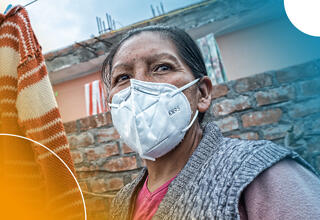Although it is possible to notice important normative and political advances in relation to the prevention and care of gender violence, there is still a significant gap between the approved public policies and the achievement of effective prevention and care of gender violence, which allows ensure justice, protection and well-being for women who suffer various forms of violence.
In this regard, the Human Rights Council of the United Nations has recognized the importance of States guaranteeing access for women victims of violence to specialized assistance, including medical and psychological assistance, and has urged governments Given the magnitude of the problem, to continue examining the issue of eliminating all forms of violence against women, its causes and consequences, as a matter of high priority. Precisely, recognizing the need to strengthen state responses to gender-based violence, the international community approved as part of the Sustainable Development Goals, and therefore as a global priority, to achieve gender equality and eradicate violence based on gender. gender.
Find here the catalog of essential services for managing cases of violence from an integrated approach: https://serviciosesencialesviolencia.org/
On the relevance of ensuring a multisectoral, comprehensive and articulated response for survivors of gender-based violence, we share this video, which draws attention to the protective impact that a multisectoral approach to cases of violence in relation to physical health can have , mental, reproductive health, work and personal development of women who suffer some type of violence.
The management of cases of violence against women from multisectoral, gender and human rights approaches is essential to reduce the impact of violence on the life project of women.
In the context of the 2030 Agenda, we have new and better tools to carry out a transformative process and overcome the most pronounced feature of our region: inequality. Our obligation is to leave no one behind. - Empowering women and girls is not only the right thing to do, it is also a wise and essential step to end poverty and promote shared prosperity.


